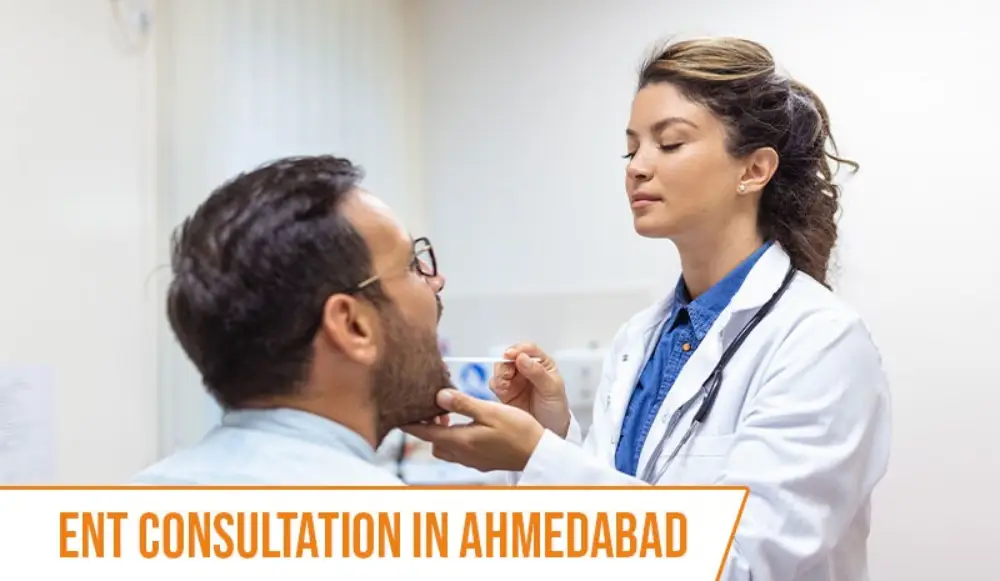How ENT Consultation Can Help You Identify and Treat Ear Conditions

Introduction
Ears are an integral part of life. They provide us with an experience not only of sound but also contribute significantly to our overall body balance. Hence, even seemingly minor problems have a significant bearing on our life quality if untreated. The treatment for ear ailments begins with proper consultation with the Ear, Nose, and Throat specialist. For the city folks of Ahmedabad, ENT consultations by specialists assure specialized care toward your needs.
This guide will cover the importance of ENT consultations, common ear conditions, diagnostic approaches, and treatment options, all pointing out how timely intervention can restore your auditory health.
What Does an ENT Specialist Do?
ENT specialists, which are also called otolaryngologists, are physicians who can diagnose and treat ear, nose, and throat disorders. As far as ear conditions go, experts at ENT include-
- Diagnosing infections, hearing loss, and structural problems.
- Balance disorders and tinnitus treatment.
- Manage otitis media-a chronic condition affecting the ear.
- Performing surgeries when appropriate, like inserting cochlear implants or repairing a perforated eardrum.
Their comprehensive understanding of the ear’s anatomy and function ensures precise treatment tailored to the patient’s needs.
Common Ear Conditions and Symptoms
Understanding the symptoms can help you realize when it is time to make an appointment to see an ENT. Here are some of the most common ear conditions:
- Ear Infections (Otitis Media or Externa)
Symptoms: Pain, swelling, discharge, fever, or muffled hearing.
Cause: Often bacterial or viral infections that are aggravated by water exposure or colds.
- Hearing Loss
Symptoms: Difficulty in hearing conversations, having to crank up the volume, or the constant ringing of tinnitus.
Cause: It is probably a result of age, noise exposure, or sudden trauma.
- Tinnitus
Symptoms: Ringing, buzzing, or hissing sounds in one or both ears.
Cause: Noise-induced hearing loss, stress, or earwax blockage.
- Balance Disorders
Symptoms: Dizziness, vertigo, or unsteadiness.
Cause: Inner ear problems, such as vestibular neuritis or Meniere’s disease.
Diagnostic Procedures During ENT Consultations
When you go to an ENT specialist, they run a series of tests and examinations to pinpoint the problem. Here’s what to expect:
- Medical History and Symptom Review
The consultation begins with a thorough discussion of your symptoms, medical history, and any past ear-related issues.
- Physical Examination
The specialist will use an otoscope to examine the ear canal and eardrum for signs of infection, blockage, or damage.
- Audiometry Tests
These tests evaluate the capability to hear and diagnose a hearing loss condition.
- Imaging Tests
A CT or MRI scan may be prescribed to look at structural anomalies or deeper issues.
- Balance Testing
When a patient suffers from dizziness or vertigo, balance tests include electronystagmography or videonystagmography.
Treatment Options for Ear Conditions
The treatment plan depends on the diagnosis, but common ones include:
- Medications
Antibiotics for bacterial infections.
Anti-inflammatory drugs to reduce pain and swelling.
Ear drops for localized treatment.
For permanent hearing loss, hearing aids can amplify sound and improve quality of life.
- Surgical Procedures
Myringotomy: Draining fluid from the middle ear.
Tympanoplasty: Repairing a damaged eardrum.
Cochlear Implants: For severe hearing loss.
- Therapies for Tinnitus
Tinnitus can be dealt with by using sound therapy and counseling.
When to Seek ENT Care?
It’s time to consult an ENT specialist if you notice:
- Persistent ear pain or discomfort.
- Hearing difficulties or sudden hearing loss.
- Recurring ear infections.
- Chronic tinnitus or dizziness.
Delaying treatment can lead to complications, so early intervention is key.
